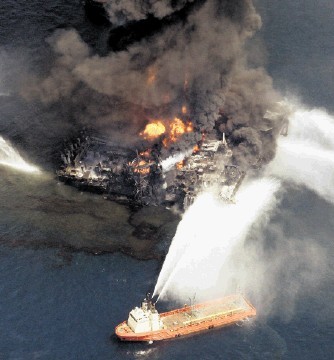
Under new rules to be introduced next April, Health and Safety Executive checks will no longer be routinely carried out on premises considered to be low risk.
The new plans mean that shops, office, pubs and clubs will no longer face health and safety inspections. The Government says it will scrap or change more than 3,000 regulations and says its drive to cut bureaucracy will save companies millions of pounds.
It is business secretary Vince Cable’s response to his belief that excessive regulation costs time and money.
The likelihood though is that it will result in giving the green light for those businesses “who have a mind to do so” to just cut corners with potentially dire consequences.
It’s perhaps just as well then that those operating in higher-risk areas such as the energy sector will still face HSE inspections and in many cases with more attention to detail and due diligence.
Surely though, whatever your business, we all need to play our role in ensuring a safe workplace, and ultimately it’s in the boardroom where the prime responsibility sits to create the correct safety culture for their organisation.
Management’s style of leadership is crucial in ensuring processes are simple, fit for purpose, widely communicated, and staff compliance with health and safety is achieved through good example. It is key for employers to stop and think what could happen to their employees and take the correct mitigation measures to prevent injury.
Why do tragedies like the much publicised loss of the rig Deepwater Horizon still happen?
It is because, even with clear safety procedures in place, the pressure to deliver means that management still takes short cuts to save time and money.
So it takes an accident for some companies to recognise the crucial importance of health and safety at work and yes it’s true that many firms (and not just SMEs) are still dismissing the legislation as a costly nuisance, instead of a vital way of making their workplace safer and protecting lives.
It is surely tragic if people have to wait until there is injury or a fatality in their company before management realises the importance of health and safety to their business.
Some companies remain ignorant about the legislation and don’t understand that it is about protecting their staff’s well-being.
However, that’s no excuse. People’s lives are being put at risk and there are still too many examples where management are not thinking about safety first.
Organisations need to be clearer, not so much about what they are saying but what they are doing. It involves more genuine empowerment of their staff to ensure that what’s being done in practice is safe and aligned to their safety management systems.
At FQM we view health and safety not as an “add-on” but as an integral part of a company’s overall management system and a way of demonstrating how they do business. This should be how organisations define how “things” are actually done, not what management think is being done.
However, HSEQ (health, safety, environment and quality) can’t be managed from the office.
Quality of performance comes from individual’s actions, driven by what they think and feel. This is heavily influenced by the culture set by management. Remember your lowest standard can become your subordinate’s or contractor’s highest.
So unfortunately, it takes accidents, incidents and even disasters like Deepwater Horizon to remind all management teams, and not just those in the high risk energy industries, to take their health and safety responsibilities seriously.
Management should always be considering the potential, unintended consequences of their decisions at all times and none more so in these “recessionary times” when corporate priority is focused on time equals money.
Failure to do so will always prove the more expensive in cost and reputation.
Yes, improving the UK’s workplace safety record should be the responsibility of all.
Yet extolling a more positive message, rather than one ringing fear and trepidation in businesses is still the challenge.
This is not helped by today’s blame culture dominance and the labelling of “Elf and Safety” as something of an expensive and burdensome joke.
But until management at the very top take the initiative to put the correct safety procedures and training in place, it’s only a matter of time before you or your company suffers and that’s no joke.
Allan Dick is the Managing Director of HSEQ consultancy and training organisation FQM.